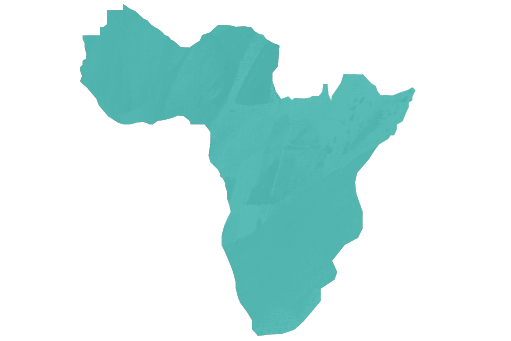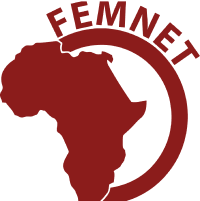Sub-Saharan Africa

Learn more about the data-driven advocacy work of EM2030 partner, FEMNET, and about Sub-Saharan’s performance in the SDG Gender Index.
EM2030’s coalition partner in Sub-Saharan Africa, FEMNET aims to build a robust women’s movement for gender equality in Africa through developing a network of social activists and female leaders.
Learn more about FEMNET’s data-driven advocacy work.
About gender equality in Sub-Saharan Africa :
2020 Index score: 52.0
2015 Index score: 49.8
Status: ‘Some progress’ since 2015 and ‘very poor’ overall score

Key findings
Sub-Saharan Africa has seen some progress in its overall score on the SDG Gender Index, but the region’s score of 52 is still very poor.
Sub-Saharan Africa has seen ‘some progress’ in its overall score on the SDG Gender Index, but the region’s score of 52 in 2020 is still ‘very poor’. The Index sheds light on 36 countries, covering 96% of girls and women in sub-Saharan Africa in 2020.
Across the Sustainable Development Goals (SDGs), sub-Saharan Africa scores highest on SDG 8 on work (67 points) and SDG 11 on sustainable cities (60 points). ‘Some progress’ has been made on SDG 5 on gender equality, as reflected in a 3-point change between 2015 and 2020, with particular gains made on higher shares of women in ministerial roles (Ind. 5.5). Mozambique, Rwanda and South Africa all score 90 points or higher (‘very good’) on this indicator for 2020.
Several countries in the region achieved ‘very good’ scores with low rates of military expenditure as a percentage of gross domestic product (GDP) (Ind. 17.1), outperforming high-ranking Denmark, Norway and New Zealand. Similarly, sub-Saharan Africa ranks second on women’s perception of environmental policies (Ind. 13.2) behind only Asia and the Pacific – however, at 54 points in 2020, its performance is still considered ‘very poor’.
‘No progress’ has been made on SDG 1 on poverty, with the region retaining an overall score of 58 (‘very poor’) since 2015. At just 32 points, the regional average on women’s perceptions of household income (Ind. 1.4) is strikingly low, and only Mali, Mauritius and Tanzania score 50 or more on this indicator for 2020.
Sub-Saharan Africa has also seen ‘no progress’ on SDG 10 on inequalities, with an Index score of 47. Only 12 countries score 50 or more on gender diversity laws (Ind. 10.5) in 2020, while eight score below ten points – South Africa is a regional outlier with 92 points.
Looking at overall country performance, progress has been mixed since 2015 for the three top-scoring countries in the region – Mauritius and South Africa have both seen ‘some progress’, while Namibia has seen ‘no progress’. As for the lowest-scoring countries, the Democratic Republic of Congo has made ‘fast progress’, Niger ‘some progress’ and Chad ‘no progress’. The countries experiencing the biggest changes in Index scores are Benin (+9 points), Senegal (+5 points) and Tanzania (+4 points).
Reflections from the African Women’s Development and Communication Network (FEMNET)
The 2022 SDG Gender Index reports a 2.2-point increase in sub-Saharan Africa’s Index score between 2015 and 2020, bringing the region to 52 points overall. While slight, this improvement in gender equality is welcomed, especially against the backdrop of political instability in countries like Ethiopia and Mali, coordinated and well-resourced opposition to progressive developments, a backlash on themes like sexual and reproductive health and rights, and shrinking civic space.
Thirteen countries on the continent are not included in the Index, pointing to persistent gaps in gender data that can contribute to a lack of accountability. Even for those countries included in the Index and showing progress, gender data gaps can mask deep disparities within a country. Impressive gains in the Democratic Republic of Congo, for example, do not erase significant and persistent inequalities. Despite the Constitution establishing a legal basis for equality and equity, the representation of women in leadership and decision-making remains unacceptably low in this country, and violence against women and girls very high. Similarly, in Mali, data remain sparse on the key issue of women’s leadership in peace-making processes in conflict-afflicted areas.
In Tanzania, shrinking space for civil society remains a challenge that must be addressed in order to see sustainable change and continued momentum on its 4-point improvement in Index score since 2015. Given the relative security and growing civil society and women’s and youth rights movements in many parts of the continent, the marginal improvements in Index scores for countries such as Kenya reflect the barriers that cultural norms and beliefs pose to the realization of gender equality. This is indeed manifested across sub-Saharan Africa, with most countries showing ‘slow progress’ and even moving in the ‘wrong direction’ on gender equality, as evidenced by Nigeria, Mauritania and Zimbabwe.
If the continent is to accelerate progress on gender equality and women’s empowerment, a feminist and inclusive approach is a bare minimum requirement in the development of laws and policies. And this requires analysis of cultural norms and beliefs, and the addressing of issues around power and decision making as well as control over assets and resources. Bold steps are needed to challenge patriarchy and other oppressive systems including capitalism and neo-colonialism, applying an intersectional lens to government policies and practices and acknowledging the multiple forms of discrimination that interplay to create unique inequalities and exclusion, especially for women and girls.
